
The rising that began on 15 February 1877 had the gravitas and splendour of the Sengoku Jidai (the bygone Warring States period) that roiled Japan from 1457 to 1600. But the circumstances of 1877 were different as samurai in their thousands, armed to the teeth, swept through northeast Kyushu – Japan’s prominent southern island.
Outwardly, these fighting men of Satsuma Province announced a long trek to the imperial capital Tokyo as a means for pressing their cause. Within weeks, however, the campaign faltered as a botched siege and a wobbly command structure undermined the rebels.
Adding insult to injury, the response from Tokyo was the arrival of army and police regiments in their drab marine-blue uniforms. Leading the imperial forces were aristocratic samurai and courtiers who were determined to uphold the new era: the end of the Tokugawa bakufu and the permanence of Emperor Meiji, whose backers had triumphed in the Boshin Civil War that was fought from 1868 until 1869. The contrast between the two opposing sides was at the heart of the conflict, where low-ranking samurai of Satsuma’s Shimazu clan feared their class and the very social order in which it existed was being eroded by the modernising reforms of the 1870s.
Leading the rebels was Saigo Takamori, once a champion of restoring the emperor but now fully committed to overthrowing the state. Tall and muscular, his most distinguishing features were a barrel chest and two thick eyebrows. Opposing him was not just the young Emperor Meiji, formerly known as Prince Mutsuhito, but the imperial court, or mikado, that was staffed by the heads of other samurai clans, all firm believers in a modern society that could stand among the world’s industrial powers.
This story is from the Issue 116 edition of History of War.
Start your 7-day Magzter GOLD free trial to access thousands of curated premium stories, and 9,000+ magazines and newspapers.
Already a subscriber ? Sign In
This story is from the Issue 116 edition of History of War.
Start your 7-day Magzter GOLD free trial to access thousands of curated premium stories, and 9,000+ magazines and newspapers.
Already a subscriber? Sign In
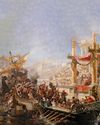
NAUMACHIA TRUTH BEHIND ROME'S GLADIATOR SEA BATTLES
In their quest for evermore novel and bloody entertainment, the Romans staged enormous naval fights on artificial lakes
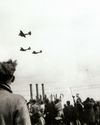
OPERATION MANNA
In late April 1945, millions of Dutch civilians were starving as Nazi retribution for the failed Operation Market Garden cut off supplies. eet as In response, Allied bombers launched a risky mission to air-drop food

GASSING HITLER
Just a month before the end of WWI, the future Fuhrer was blinded by a British shell and invalided away from the frontline. Over a century later, has the artillery brigade that launched the fateful attack finally been identified?
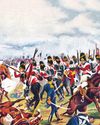
SALAMANCA
After years of largely defensive campaigning, Lieutenant General Arthur Wellesley went on the offensive against a French invasion of Andalusia

HUMBERT 'ROCKY'VERSACE
Early in the Vietnam War, a dedicated US Special Forces officer defied his merciless Viet Cong captors and inspired his fellow POWs to survive
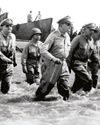
LEYTE 1944 SINKING THE RISING SUN
One of the more difficult island campaigns in WWII's Pacific Theatre saw a brutal months-long fight that exhausted Japan’s military strength

MAD DAWN
How technology transformed strategic thinking and military doctrine from the Cold War to the current day
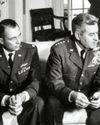
BRUSHES WITH ARMAGEDDON
Humanity came close to self-annihilation with the Cuban Missile Crisis, Broken Arrows’ and other nuclear near misses
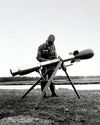
THE DEADLY RACE
How the road to peace led to an arms contest between the USA and USSR, with prototypes, proliferation and the world’s biggest bomb
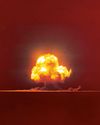
THE MANHATTAN PROJECT
Einstein, Oppenheimer and the race to beat Hitler to the bomb. How a science project in the desert helped win a war